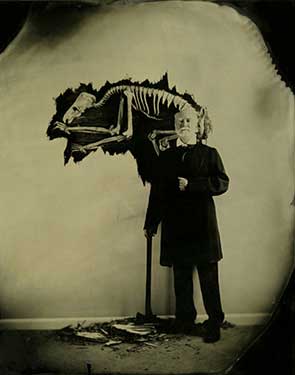


When I moved back to California I bought an Olivetti Lettera 22 on eBay. Italian, a relic of the 1950s, it was the same typewriter Joan Didion had used. Feeling stuck, I thought anything might help. At the time, I'd been reading interviews with other, younger writers, who said they were trying typewriters again. With typewriters, they said, you had to decide. The typewriter, which cost less than forty dollars, was a pale, cloudy blue, with black-and-silver accents, the brand names embossed on metal. It came in a tan fabric and leather zip case with a button-snap closure. When the ribbon started drying, I visited the typewriter store on University Ave and bought a replacement spool, with a band of red and a band of black. You could type in two colors.
I've always had a hard time getting over people. In Iowa a girl I had been sort-of seeing had sort-of broken up with me, leaving me feeling so depressed and so self-conscious I started going to therapy. The therapist said try Tylenol PM. I didn't know I would spend two years failing to write, while almost meeting the people I wouldn't need to get over.
I missed California. Someone I knew, a graduate student who was studying Comp Lit, emailed me to say she was going away for the summer, and would I like a place to stay. I moved to Berkeley, rented her room. Someone moved out, someone new moved in. She was from Brooklyn, and Mississippi, a sarcastic overachiever who wore vintage dresses, tattoos, and a Yale class ring, who listened to the Dirty Projectors and was studying for dental school. We went to Berkeley Bowl West and bought Hitachino Nest Ales. Neither of us had jobs, but we had some time. I started an internship, and she baked a pie. One day we drove to Muir Beach in Marin, where she studied from her DAT book, and I read Eeeee Eee Eeee. We kissed during the Perseids, slept like clothed parentheses.
I left graduate school because I wanted to write. I thought I wanted to find a place outside of universities, work in publishing or journalism. In North Berkeley I set the Olivetti on the borrowed IKEA desk with birch veneer, and I started writing a short story about a depressed modern dancer who was recovering from a minor dance injury called kissing spines. How much did I know about modern dance, though, modern dance or short stories. When my sublease in Berkeley ran out, I schlepped my books to San Francisco, where I lived with a couple of guys I'd met through work, who knew about n+1 and This Recording. Mississippi stopped being in touch. A few weeks later, in early October, we ran into each other again at the Hardly Strictly Bluegrass festival in Golden Gate Park. Standing on the sandy, trodden turf in the wind in a stand of eucalyptus and a throng of people leaving she looked away and covered her face, and touched her knit wool hat. I stared at the ground. We walked in opposite directions. People change their minds, and I say a lot of stupid things. Sometimes you want to audition the words.
Once I asked a girl I'd met through a publishing internship, a former party reporter for a magazine, to meet for coffee at a place in NOPA, a newish café that had opened on Divisadero. The reviews on Yelp were favorable. She ordered tea, shivering in the not-too-warm afternoon sun, and said in as many words she didn't like coffee or bicycles. We talked awkwardly about Jonathan Franzen until her friend waved from the sidewalk, and she left, and said she was planning a trip to New York. I wondered what now. A week passed. A few weeks passed. Then I'd acquired one more fake Facebook friend I'm too embarrassed to contact in real life. It's almost not worth mentioning.
Sometimes I would read Missed Connections, never expecting to have been missed. Someone wrote about me, but I didn't respond. What could you say?
A different internship expanded, becoming a part-time, contingent job, which paid just enough to live in the city. Meanwhile, I applied to MFA programs. I was rejected from every MFA program I applied to. I turned 29, was worried. I had been moving so often I felt like a sort of hobo, albeit one who was paying nine hundred dollars a month in rent. From the Mission I moved to the Upper Haight, then back to the Mission again, with a stop in the South Bay suburbs in between, each time taking the Lettera, but using it less and less. One month I bought The National's High Violet on vinyl, soaking up Matt Berninger's melancholy ballads, murmuring along in a low register. "I was a comfortable kid, but I don't think about it much anymore," sang Berninger on "Lemonworld," and the words felt like some sad gospel. I wished I were less shy. I wished my father hadn't become an alcoholic. I was losing track of people.
I was working for an education website, where I'd been asked to write what was beginning to feel uncomfortably close to a genre known as mommy blogging. Still, I tried to write about education policy, or else I extracted anecdotes from my own life, and it blended to form a uniquely obnoxious style. Sometimes I linked to the writers I admired most, wishing I could disappear. I felt like a fake and a failure. I knew nothing about relationships—even less about parenting. I had kissed only one person in the span of a year, and slept with none, if by slept you meant sex, and it was turning into a span of a lot longer. Eventually I was let go, and I moved home with my parents.
There's no "1" on the top row of numbers. Instead there's an unmarked key, grayish black with rounded corners, and functionless by design, that presses down only halfway.

